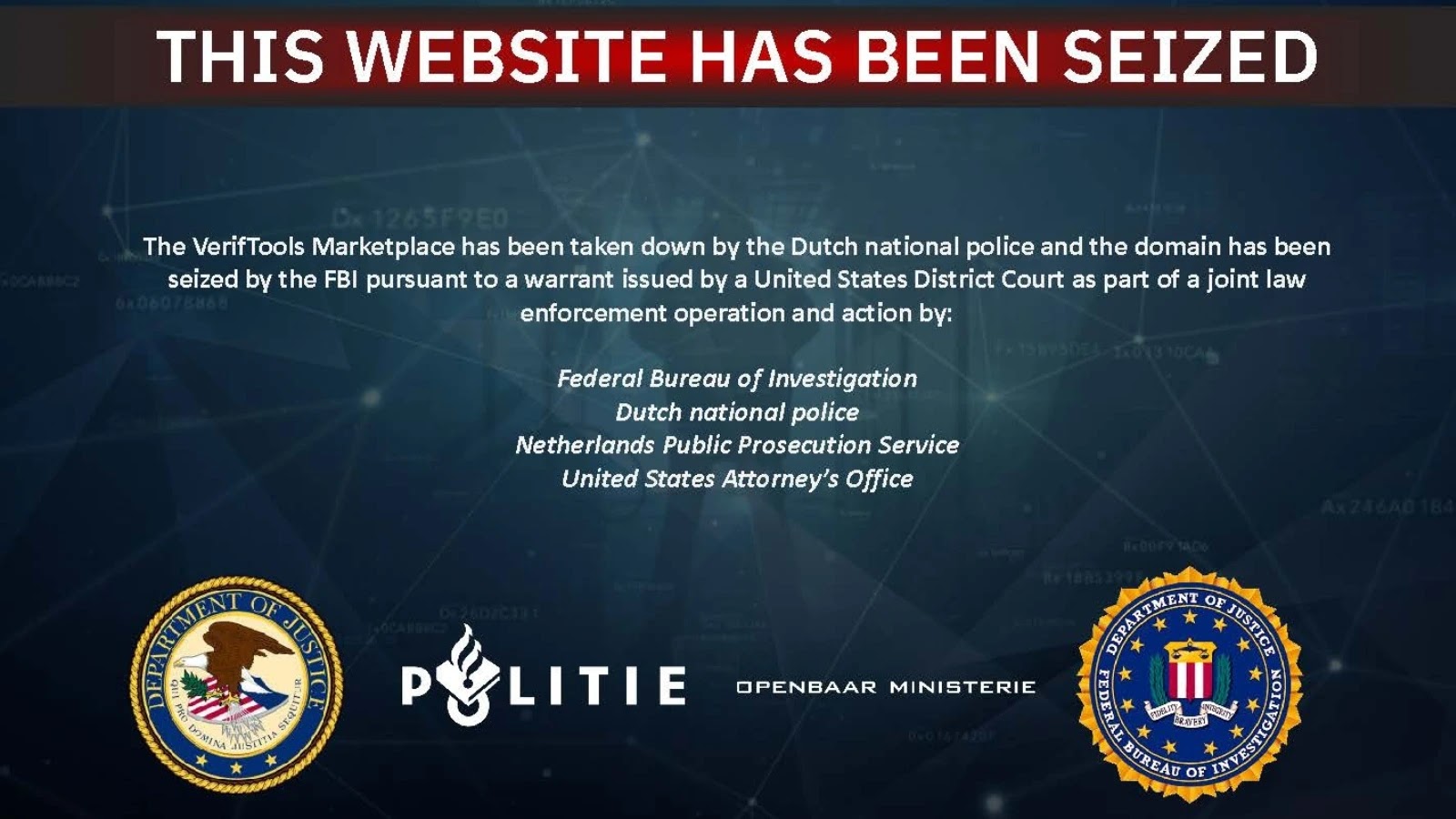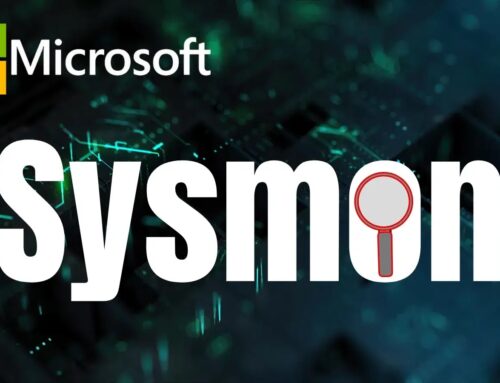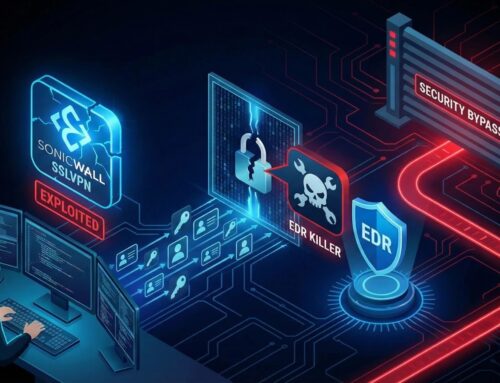
U.S. Government Seizes Online Marketplaces Used to Sell Fraudulent Identity Documents to Cybercriminals
The dark web is often portrayed as a shadowy realm, a haven for illicit activities. While this perception largely holds true, the recent actions by the U.S. government highlight a crucial truth: even in the murky depths of online criminality, law enforcement can and will intervene. A significant victory against identity fraud and cybercrime was recently announced by the U.S. Attorney’s Office for the District of New Mexico: the successful seizure of online marketplaces instrumental in peddling fraudulent identity documents to cybercriminals.
The Takedown of VerifTools: A Blow Against Counterfeit Identities
Federal authorities have executed a court-authorized seizure of two domain names and one affiliated blog linked to VerifTools. Operating since 2020, VerifTools functioned as an illicit online marketplace, specializing in the sale of counterfeit driver’s licenses, passports, and various other state- and country-issued identity documents. This operation served as a critical nexus for cybercriminals seeking to bolster their fraudulent endeavors, enabling everything from account takeovers to sophisticated financial scams. The successful seizure of VerifTools represents a direct hit against the infrastructure supporting a wide array of online fraud.
The impact of this seizure reverberates far beyond the immediate disruption of VerifTools. It sends a clear message to those operating similar illicit services: law enforcement agencies possess the capabilities and the resolve to track, identify, and dismantle these networks. The coordinated effort underscores the ongoing battle against criminal enterprises that exploit digital platforms for their nefarious activities. This particular takedown focused on a core component of the fraud ecosystem, addressing the supply chain of fake documents that fuels numerous cybercrimes.
Understanding the Threat: Why Fake IDs Matter to Cybersecurity
The availability of high-quality forged identity documents poses a significant threat to global cybersecurity and economic stability. Cybercriminals leverage these illicit documents for a multitude of malicious purposes, including but not limited to:
- Identity Theft and Account Takeover: Forged IDs can be used to bypass identity verification checks, enabling criminals to open new fraudulent accounts, take over existing ones, or access sensitive financial services.
- Money Laundering: Fake identities facilitate the creation of shell companies and strawman accounts, allowing criminals to launder illicit funds without detection.
- Circumvention of KYC/AML Regulations: Know Your Customer (KYC) and Anti-Money Laundering (AML) regulations are designed to prevent financial crime. Counterfeit documents undermine these critical safeguards.
- Phishing and Social Engineering: A convincing fraudulent identity can lend legitimacy to social engineering attempts, making victims more likely to fall prey to sophisticated phishing attacks.
- Dark Web Activities: Many illegal activities on the dark web, from drug trafficking to ransomware operations, rely on anonymous, untraceable transactions often facilitated by fake identities.
The integrity of identity verification processes is paramount in a digitally connected world. When these processes are compromised by readily available counterfeit documents, the floodgates open for widespread fraud and a significant erosion of trust in online transactions and digital services.
Preventative Measures and Remediation Actions
While law enforcement actively targets the supply side of fraudulent documents, organizations and individuals must bolster their defenses. Robust cybersecurity practices are essential to mitigate the risks associated with identity fraud:
- Multi-Factor Authentication (MFA): Implement strong MFA across all accounts and systems. Even if credentials are compromised, MFA provides an additional layer of security.
- Enhanced Identity Verification: Businesses, especially those in financial services, should explore advanced identity verification techniques beyond simple document checks, such as biometric authentication or liveness detection.
- Employee Training: Educate employees on the dangers of social engineering, phishing, and the importance of verifying identities carefully, especially in remote transaction scenarios.
- Regular Security Audits: Conduct frequent security audits and penetration testing to identify and address vulnerabilities in identity management systems.
- Fraud Detection Systems: Deploy sophisticated fraud detection analytics that can identify anomalous behavior and patterns indicative of fraudulent activity, even if legitimate-looking documents are presented.
- Information Sharing: Participate in industry-wide threat intelligence sharing platforms to stay updated on emerging fraud schemes and compromised identity data.
The Ongoing Battle Against Cybercrime and Identity Fraud
The seizure of VerifTools marks a significant win in the relentless fight against cybercrime and identity fraud. It highlights the collaborative efforts between federal agencies and underscores the evolving strategies employed to disrupt illicit online ecosystems. As technology advances, so too do the methods of cybercriminals. However, this action serves as a potent reminder that law enforcement remains committed to pursuing and dismantling those who exploit the digital landscape for criminal gain.
This success story contributes to bolstering the overall security posture for individuals and organizations alike. By reducing the availability of fraudulent identity documents, the foundation for many cybercrimes is weakened. The ongoing vigilance and proactive measures from all stakeholders — law enforcement, cybersecurity professionals, and individual users — are crucial in maintaining a safer and more secure digital environment.





